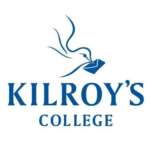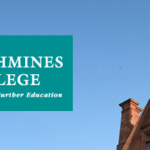We are all influenced by the culture that surrounds us, whether we know it or not. We help shape it just as it helps shape us. Cultural Studies is not just about the study of books and art; it is the study of all cultural phenomena from the ways in which we communicate to our attitudes towards celebrity; from political debates to the ever-shifting trends in fashion. The aim of Cultural Studies is to understand how meaning is created and spread from the social, political and economic spheres. It examines attitudes towards the things that affect our personal lives (e. g. morality, class), and their public organisation (e. g. law, politics).
What does it involve
By definition, Cultural Studies is a diverse field. As a broad area of enquiry, some courses may pay particular attention to historical foundations, while others may focus more on contemporary culture and on existing conflicts.
Students who would like to learn more about the former may be interested in taking a course in Greek and Roman Art and Architecture. Such a course is hugely relevant because of the profound affect the Greeks and Romans have had on the Western world. This influence encompasses vast areas such as politics, art and religion all of which will be discussed on the programme in some detail. Though the course s focus is mainly on artistic and technical achievements, these will be examined within a political, social and cultural context.
While the roots of Western culture can be traced back to Ancient Greece and Rome, modern Western society is both multifaceted and multicultural. A course in Multicultural Awareness will give students the chance to develop their understanding of the psychology of different cultures and the interactions between persons from different cultural backgrounds. Those who wish to gain a greater degree of insight into neighbouring cultures and their histories can also opt to enrol on more specific programmes such as Introduction to Polish Culture or Cultures of Central and Eastern Europe.
There are also options available to those keen to learn more about elements of Irish culture and society, one of which is the part-time course in Pavee/Irish Traveller Herbcraft and Storytelling. Students on this programme will be given a theoretical and practical insight into a fascinating and often misunderstood world. The course will be of particular interest to the health and community sectors and to those with an interest in folk culture and herbal medicine. Another study option for learners is the Certificate in Citizenship and Society. This course will look at what it means to be a citizen in modern Irish society by examining issues such as equality, diversity and active citizenship.
Learners who are interested in advancing their cultural education to degree level may also take the part-time BA in Media/Cultural Studies a wide-ranging programme that combines elements of sociology, literary and film studies with qualitative and ethnographic research methods to allow students to critically engage with a broad field of topics such as globalisation, ethnicity and race, the body, sexuality, and religion and politics. Students may also engage with themes such as the origin of culture, language and violence. The media branch of the course will examine the global expansion of the mass media and investigate the way it shapes our understanding of world around us. Course modules include Material Culture and Consumption, Culture and Colonialism, and Gender and Sexuality.
Why do it
The world is undeniably becoming a smaller place. Taking an interest in and learning about other cultures therefore facilitates a greater level of social understanding, cultural awareness, and ability to contextualise important issues and societal responses to them.
What comes next
Part-time Cultural Studies programmes are an excellent option for students looking to augment their studies in other arts-based disciplines such as English, history, anthropology, political science or sociology. Developing a good level of cultural awareness is important to anyone hoping to work within journalism, the media, or in the field of communications. Other roles that require plenty of cultural context include those within cultural institutions (e. g. museums), advocacy groups, service groups or non-government organisations.
At a glance
Part-time Cultural Studies courses vary in their duration and cost, typically lasting for between 9 and 24 weeks. The part-time BA in Media/Cultural Studies runs for 4 years.



















